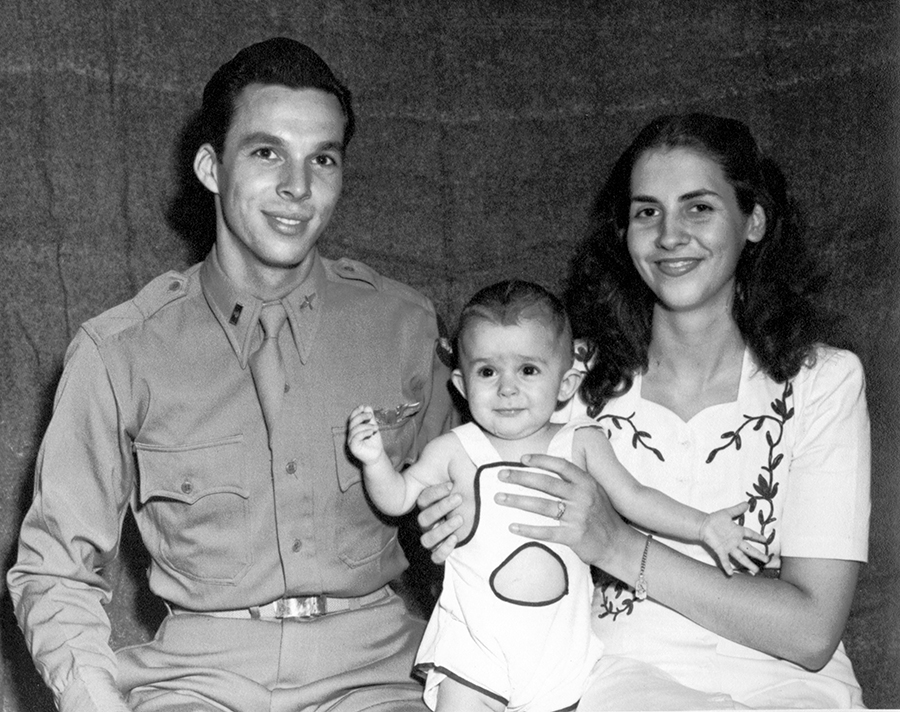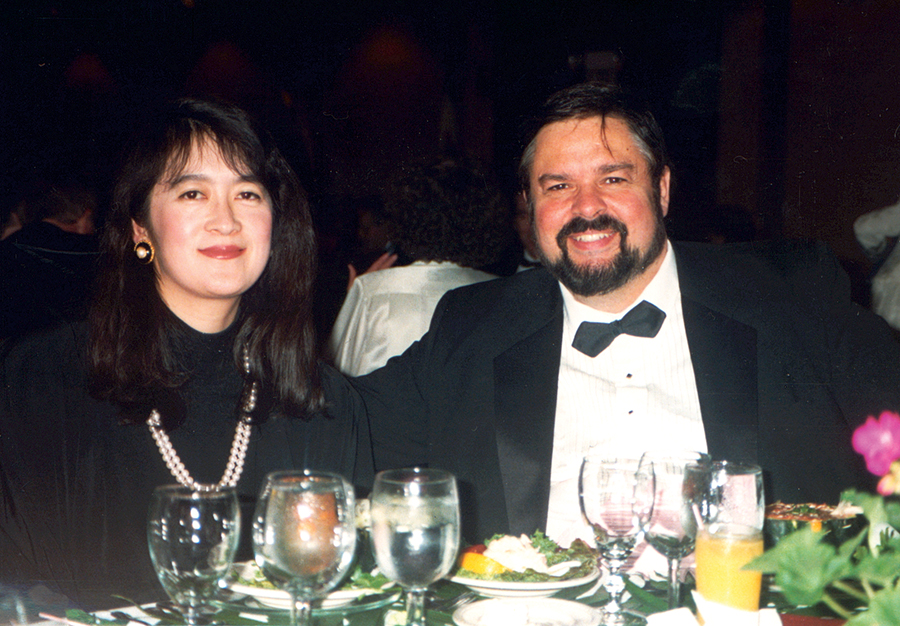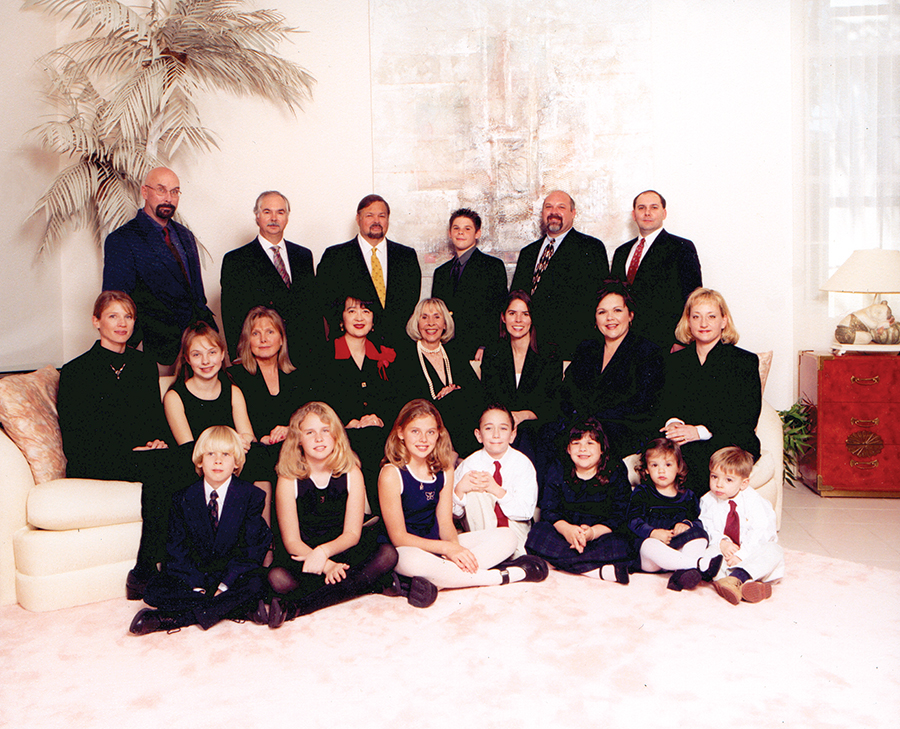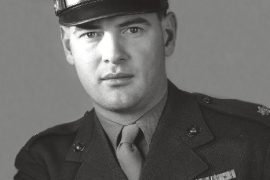Meet Bob Shell, a successful international businessman and powerful state leader who works quietly behind the scenes to improve the lives of young people in our community.
By John H. Houvouras
HQ 57 | WINTER/SPRING 2006
He is the current Vice-Chairman of the Marshall University Board of Governors. He is a major investor in Huntington’s First Sentry Bank and other financial institutions across the United States. He is a generous contributor to countless charities throughout the community. He has been a trnsted advisor to two West Virginia governors and several United States senators and congressmen. His business interests span from Logan, West Virginia to Tianjin, China.
Those in “the know” call him a friend and confidant. They respect him for a myriad of reasons, including his business savvy, uncanny vision, dogged determination, devotion to family, dedication to community and, perhaps most of all, his truly generous and kind-hearted spirit.
Meet Bob Shell, one of West Virginia’s most powerful men with a soft spot for young people in our community.
Raised in Logan, young Robert Shell, Jr. was just like any other kid from the coalfields of West Virginia. The oldest of Robert and Doris Shell’s three sons, he enjoyed swimming with his younger brothers, Craig and Bernie, in the Guyandotte River and gave no thought to the fact that he was covered in coal dust when he emerged from the cool waters. On weekends he would hop a coal train to downtown Logan – some seven miles from his house – to catch a movie. At Logan High School, he excelled at both football and baseball, but injuries during his junior and senior years ended his athletic career.

Upon graduating from high school, he enrolled at Marshall University where he began studying business even though he dreamed of becoming an astronomer.
“I probably would be an astronomer today if I had any penchant for math,” Shell says with a smile. “But I have fond memories of my time at Marshall. I made a lot of friends and everyone there, including my teachers, were all universally nice people. Being from Logan, the Marshall Artists Series was my first major exposure to culture. It had a profound impact on my life.”
At 18, he married his first wife, Jane Steele. To help make ends meet, he worked several jobs including a position as a night watchman at Barboursville State Hospital and a janitor at Novamont Corporation. Ultimately, though, he chose to leave Marshall and go to work for the family business. Shell and his wife had three children together – Robby, Todd and Lisa – but eventually divorced in the 1980s.
Shell is proud of his children. Robby and Todd live in Logan and Huntington with their respective families and run their own manufacturing and service companies. Lisa is Vice President of Public Relations for the Montreal Alouettes, Canada’s premier professional football organization. She splits her time between Montreal and Palm Beach, where she and her husband own and manage the Colony Hotel.
In 1968, Robert Shell Sr. was a part owner in two businesses – Guyan Machinery, founded in 1913, in Chapmanville, W.Va. and Permco, a fledgling manufacturer of replacement hydraulic pump parts near Cleveland, Ohio. Both companies serviced the mining industry. Shell Sr., a no-nonsense businessman, opted to put his son to work at Permco where his business skills could be honed.
Though the company was struggling, Shell was successful in turning things around. By 1970, “Shell Junior,” as he was known at the company, was coming into his own. As a result of the company’s rapid success, he purchased a 25,000 square foot building at a bankruptcy auction.
“My father thought I had lost my mind when he heard about the new building,” Shell says. “The new facility was 10 times larger that our previous location. I had to explain to him that I had renters lined up to lease the space we didn’t need. I was looking ahead and was confident that we would grow into the space.”
Shell was right. Under his stewardship Permco continued to flourish. The company he joined in 1968 had just 12 employees. By 1972 the renters were gone and the building was filled with 50 workers. His bold move at Permco would be the first in a long line of business accomplishments.
In the years that followed, Shell Sr. would divide his time between Permco and Guyan Machinery. But it would be Shell Jr. and his vision that would propel the companies to new heights in the 1980s and 1990s.
Not satisfied to merely manufacture replacement parts, in 1976 Shell began producing entire hydraulic pump units. As part of the transition, he decided to bring in an industry expert to teach a class for all Permco employees.
Rick Olszewski was a man on the rise at Clevelandbased Parker Hannifin, the world’s largest producer of fluid power components, when he received a call from Shell. At the time he was one of the_ company’s most talented engineers and troubleshooters. In addition to working on such high-profile projects as nuclear submarines and the design of the Minuteman Missile, he had literally written the books that Parker Hannifin used in their renowned hydraulic classes. At Shell’s urging, Olszewski agreed to teach some classes during his vacation.
“I attended all of Rick’s sessions,” Shell recalls. “In addition to having tremendous technical knowledge, he possessed an electrifying personality. By the end of the week I said to myself, ‘Whatever it takes, I’ve got to get this guy.’ I knew we could do great things together.”

Ironically, Olszewski was planning to talk to Shell about the future of Permco when Shell pulled him aside and offered him a job.
“The offer intrigued me because I had been working for such a large corporation,” Olszewski says. “Permco was a small family company and I liked that. And Bob was an interesting guy. We hit it off from the start.”
The two men, both in their early 30s, made a formidable duo. Shell brought business acumen and vision to the table while Olszewski kept his eye on the technical realities of any given project. “We would go on sales calls and it was like a tag team,” Olszewski recalled. “When we were done making our pitch, the client was blown away.”
The arrival of Olszewski marked the advent of a new era at Permco. The company continued to evolve and, in 1982, Shell made his first move overseas. In a joint venture with an industrial conglomerate from northern Italy, Permco opened a distributorship in Rotkreuz, Switzerland. The location would serve as a foray into the European markets where Permco would become recognized as a brand leader. Permco would later buy out their partners.
However, the excitement of the company’s move into Europe would be tempered with sadness when Shell’s father passed away in 1984. For Shell, this would be the beginning of a difficult period both personally and professionally.
“When his father died, Bob was cast in the role of family leader,” says longtime business associate Marshall Reynolds. “He assumed the role of bread winner for the entire family – not only his wife and three children, but his mother, brothers, cousins, you name it.”
These were trying times for his entire family, including his mother.
“There was a point when I could have sold the family business and made her life comfortable,” Shell says. “Or I could try to grow the business to new heights. I asked her to make that decision and she said she would rather see me succeed in business than have a guaranteed meal ticket. My mother has a keen business sense. She is absolutely devoted to her sons. She’s been very supportive of me.”

Shell began overseeing the family’s interests in both Permco and Guyan Machinery. He was not only traveling back and forth between Cleveland and Logan, but grappling with tough business decisions as well. In 1985, he initiated a leveraged buyout of Guyan Machinery, at the time a 72-year-old company.
“I’ll never forget going to my first board meeting in Logan,” says Reynolds. “Bob was in the middle of a leverage buyout of the company and there was a lot of tension in that room. Talk about a boardroom battle. After the meeting ended I turned to one of the board members and bet him that Bob would be dead in three months from all the stress he was under. But I was wrong. Bob is a fighter. He’s one of the most determined people I know.”
With the battle for control of the family businesses from outside interests now behind him, Shell relocated to Charleston in 1986. He continued to divide his time between business interests in Logan, Cleveland and Switzerland. Bob’s brother Bernie also joined the company at this time. “Bernie has an MBA and is a golfer of some skill,” says Shell. “He helps me with the high end projects and the industrial social functions.”
When Shell wasn’t traveling, he took an active interest in the community, including serving on the Board of Trustees at the University of Charleston. It was during this time that he met a promising graduate student. Lena Ji was a scholar from China nearing the end of her studies when the two struck up a friendship. As the relationship grew more serious, Lena learned that she had received a scholarship to a West Coast university to pursue further graduate studies. Shell recalls feeling conflicted when he learned of Lena’s good news.
“I said to her, ‘I’m getting ready to move to Huntington and I would like you to come with me. But I understand that this is a great opportunity. It’s your decision.’ And, for some reason, she chose me. She enrolled at Marshall University and began working on her doctorate.
“We’ve been together for 20 years now,” Shell says. “I still can’t believe my good fortune.”
In 1989 the couple moved to Huntington. Shell purchased the old Nichols estate near the Huntington Mall, a 14,000 square foot home on 11 wooded acres. He also moved the resistor division of Guyan Machinery to Huntington’s West End. Located in the former Ensign Electric building, the division employed 80 people and manufactured industrial resistors for the MARTA mass transit system in Atlanta as well as high profile government contracts including several Strategic Defense Initiatives (also known as Star Wars.) He eventually sold the division to British conglomerate Halma Holdings. Shell then established the corporate headquarters for Guyan International -the holding company for Guyan Machinery and Permco – in Huntington as well.
“I found that with a fax machine, e-mail and a jet airplane, we could remain in Huntington and make our home the corporate headquarters,” he said.
Another key reason Shell opted to move to Huntington was the opportunity to work more closely with Reynolds.
“One of the main reasons I came to Huntington was to invest with Marshall Reynolds,” Shell asserts. “And he’s the reason I’m still in Huntington. We developed a business relationship as well as a friendship. He has been the most influential person in my life.”
Once here, Shell immersed himself in the community. He worked behind the scenes on numerous boards and charitable organizations. He became a major contributor to the United Way, the Boys and Girls Club, Marshall University and more. As his reputation grew among those in “the know,” he became a powerful friend to numerous politicians in the state.
In 1998, Shell traveled to China for his boldest move to date – the opening of Permco’s new manufacturing factory in Tianjin. Chinese dignitaries and government officials were on hand to welcome the American businessman, and 100 jobs, to the Far East. But this was not Shell’s inaugural visit to the country. He had actually made the first of many trips to China in 1980 in the wake of the political good will established by former President Richard Nixon.
“I went out of intellectual curiosity,” Shell recalls. “I recognized that China was going to be significant, but the country had a long way to go.”
“He has great vision,” notes John Hess, Shell’s longtime accountant in Huntington. “This was old school Communist China and the barriers of entry into the business environment were tremendous. He was ahead of most manufacturers in the United States.”
Reynolds echoes that assessment when he says, “He’s a pretty futuristic guy. He saw the future of China 20 years ago.”
“When Bob made his move in China, there were limited roads and infrastructure,” Hess explains. “In addition to those obstacles, there were cultural nuances that he had to learn. In China, you have to be careful how you greet and interact with your business associates. Of course Lena was a tremendous asset to Bob in this area.”
A year after opening the plant in China, Bob and Lena made one of the most important decisions of their lives when they decided to adopt two young girls living in a foster home. Danielle and Heather, ages seven and eight at the time, were sisters when they were welcomed into the Shell family. Perhaps it was because of their good fortune or commitment to family that Bob and Lena chose to adopt at this stage in their lives.
“Here’s a guy who, at the age of 55, takes on the responsibility of adopting two girls to give them a shot in life,” says Reynolds. “I think he understands that the more you give the more you get. I’m proud to call Bob Shell my friend.”
During the fall of 2001, Shell contracted a rare strain of meningitis and became seriously ill. In fact, there were times when he was near death. Over the course of a very long year he was either in the hospital or confined at home.
Throughout the course of his illness, Lena was at his side, nursing him back to health while overseeing the day-to-day operations of the division in China.
“When I became ill, she picked up the load and made the trips to China on my behalf,” says Shell. “And that was extremely important because Permco China is approaching 25 percent of our business. Today, Lena and I work closely together on a daily basis. She is a smart woman, a constant companion and a wonderful wife.”
“From that health scare I think Bob learned that life is fragile,” Reynolds reflects. “He really changed after that and worked with a greater sense of urgency. You could see that he wanted to accomplish something worthwhile not only for himself, but for his community and family as well.”
Those who know Bob Shell best say his work on behalf of young people, particularly children, is his greatest accomplishment.
“Bob Shell is one of the most generous men I know, especially when it comes to children’s causes,” says O’Hanlon. “He has given freely of his time and money to make the lives of many children in thi community better.”
An example of both his generosity and business savvy came in 1999 at Kellogg Elementary School in West Huntington. Shell’s god-granddaughter mentioned one day that she loved using the computer at school, but wished she didn’t have to wait so long because there was only one for the entire class. Knowing the importance of technology to a child’s education, Shell sprung into action. He organized a plan to raise $200,000 in private funds through his vast network of business associates. Four months after first hearing about the problem, Shell, along with then Gov. Cecil Underwood and a gathering of some very happy students, dedicated Kellogg’s brand new stateof-the-art computer lab. Named after his good friend Marshall Reynolds, the lab was equipped with 60 computers, high-speed Internet access and networking capabilities with teachers at Marshall University. Shell even had the foresight to hire a computer technician to work at the school full-time to assist students. He even paid for the lab to remain open in the summer so students could continue to learn.
When the new Spring Valley High School was in need of funds for new band uniforms, Shell sent in a check for $100,000.
While watching public television one evening, he took note of an articulate young lady from McDowell County who wanted desperately to go to college. As a result of that show, Shell picked up the phone and made arrangements to help pay her way through college. Today she is a graduate of West Virginia University College of Law and is clerking in the State Supreme Court.

Success for Shell has come in many forms. He has two homes – in Huntington and on Singer Island in Florida. There’s his 75-foot yacht, private jet and numerous cars. He has luxurious skyboxes at Marshall’s and WVU’s football stadiums. It’s all a far cry from Logan.
His reputation among the power brokers in the state has earned him a seat on the Marshall University Board of Governors, where he has assumed the position of ViceChairman. In 1999 he was elected to Marshall’s Business Hall of Fame.
For his 60th birthday, O’Hanlon and Reynolds threw Shell a surprise party at the Radisson Hotel in downtown Huntington. There were more than 300 people in attendance.
So what drives a man to achieve this kind of success? Two things. “First, I think I was always trying to impress my father,” Shell explains. “He was a hard man to please and we didn’t have the best relationship. I was 40 when I finally realized that my dad grew up in a foster home. I believe the things he found difficult to do like show affection or give you a pat on the back were born out of that experience.
“I think the other thing that motivated me was this phenomenon you see in southern West Virginia, where we’re told all our lives that we’re not as good as people from other places. So, we have this negative self-image. I believe that was a driving force with me. I never felt that I measured up so I always thought I had to do more.”
As successful as Shell had become, it took the unexpected death of his younger brother Craig to put his life in perspective. Craig Shell, who ran a halfway house for drug addicts and alcoholics in Phoenix, died on August 3, 2005 at the age of 49. When Bob and Lena flew to Arizona for the funeral, they were humbled by what they experienced.
“We didn’t know what to expect at the funeral,” Shell recalls. “We thought 50 people would show up. Instead, more than 500 people filled the banquet halls of the hotel where the service was held. I thought I had an appreciation for what Craig did, but I didn’t. At least a dozen people came up to me and told me that my brother saved their life. When I returned to Huntington, I thought about it. And while I feel I’ve done a lot to help other people, no one has ever walked up to me and said, ‘You saved my life.”’
Rick Olszewski likes to tell a story about Shell that sheds some light on his friend’s kindness, generosity and sense of humor.
“I stopped by to visit Bob in Huntington during a sales trip one year,” Olszewski recalls. “We spent some time together in his home and when he walked me outside to say good-bye he noticed I had a small spare tire on my car. ‘What the hell is that?’ he asked. I explained to him that I had a flat tire and that I only had another 200 miles to go and the spare would be fine. ‘You aren’t driving on that,’ he said. ‘Go get in that Mercedes over there.’ Now, you have to understand that this was Bob’s brand new Mercedes. He had always wanted a convertible Mercedes and finally bought one earlier in the year. I told him, ‘Bob, I don’t want to take it.” But he insisted. ‘Damn it, you’re the only one I’d give that car to because I trust that you’ll take care of it.’ It was July and I drove the car to Cleveland with the top down. I had the car for several weeks before I was due to return it over Labor Day weekend.
“Well, the night before I was set to bring the car back to Huntington we had a terrible storm and, I kid you not, lightning struck a tree near my house and it fell on Bob’s Mercedes. Every inch of that car was covered in dents and scratches. The next day I mustered up the courage to call him, and when I told him what had happened he started laughing. ‘I wish someone had a camera so I could have seen your face,’ he said. ‘That shot would have been priceless. Don’t worry about the car, we’ll get her fixed.”’
They say that the true measure of a man can be determined by how many lives he has touched. In Bob Shell’s case, the list is long. Over the years he has received numerous letters from young people whose lives he has impacted. Here is just one:
“Dear Mr. Shell, I have always wanted to thank you for the profound impact you have made on my life. I know there is no way you could have known the difference it has made. In fact, I would be surprised if you remember me. Yet, I think that very fact is one reason your influence was so great. For the past several years the following quote has been on my desk, ‘The real test of class is how you treat people who can not possibly do you any good.’ I worked for you from 1992-1994 at the football stadium. I was the hostess assigned to your skybox. I didn’t want that job at first because I was sure I would fail. You see, before I ever walked in I had been told what an important client you were and I could not make a mistake. I was so nervous! Then when I walked in and saw how luxurious it was, I was really intimidated. I had never been around anything like it. I was certain that my clothes wouldn’t be nice enough or I wouldn’t know the right things to say to your guests. Then, I met you. You put me at ease. You made me feel trusted and important.
“One day, the Governor stopped by and you took me by the arm and introduced me. I’ll never forget you telling him that he needed to meet me because I was going places! My background was very simple. I had hardly been out of the Tri-State area. Yet there you were introducing me to community and business leaders and telling them I was special. Well, I knew then I had a lot to live up to.
“I eventually got married and moved away. My husband and I built successful careers and enjoy a lifestyle I still can’t quite comprehend. I have traveled all across the United States and a fair amount of Europe. I’ve been the guest of many influential people yet never feel uncomfortable in such settings. I think you’re the reason. I have my first fulltime faculty position at a college and, I swear, I think the sky’s the limit for me. I try my best to make the lives of the people around me a little better in whatever way I can. Above all, I try to remember that showing faith in someone can change their life. Thank you for believing in me.”
The letter, written on Dec. 9, 2002, was signed by Christy Lampee.
On a typical week night you can find Bob Shell behind the large desk in his Huntington home, usually on the phone, talking with one of his managers overseas. Or, he might be reading a letter just like the one written by Christy Lampee. A night owl by nature, he logs late hours out of necessity and a sincere passion for his work. But there’s more to it than that. Even today, with all he has accomplished, he is still trying to prove that he measures up and silence those negative stereotypes about Southern West Virginians.
Unfortunately for Shell, his father never lived to see his son’s remarkable achievements. But “Shell Junior,” as he was known in Cleveland, has made peace with the past.
“As I matured I realized that my father had a lot of great qualities,” Shell says. “And I think he would be proud of me today. I stood on his shoulders and the shoulders of the father before him. And my children and grandchildren will do the same.”





